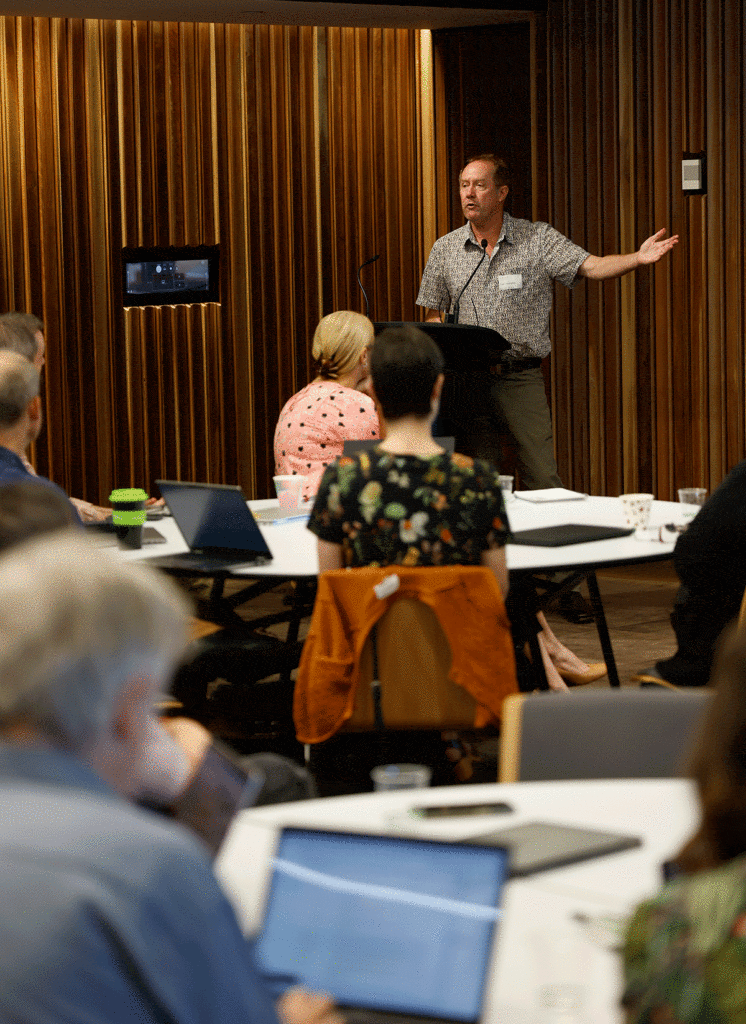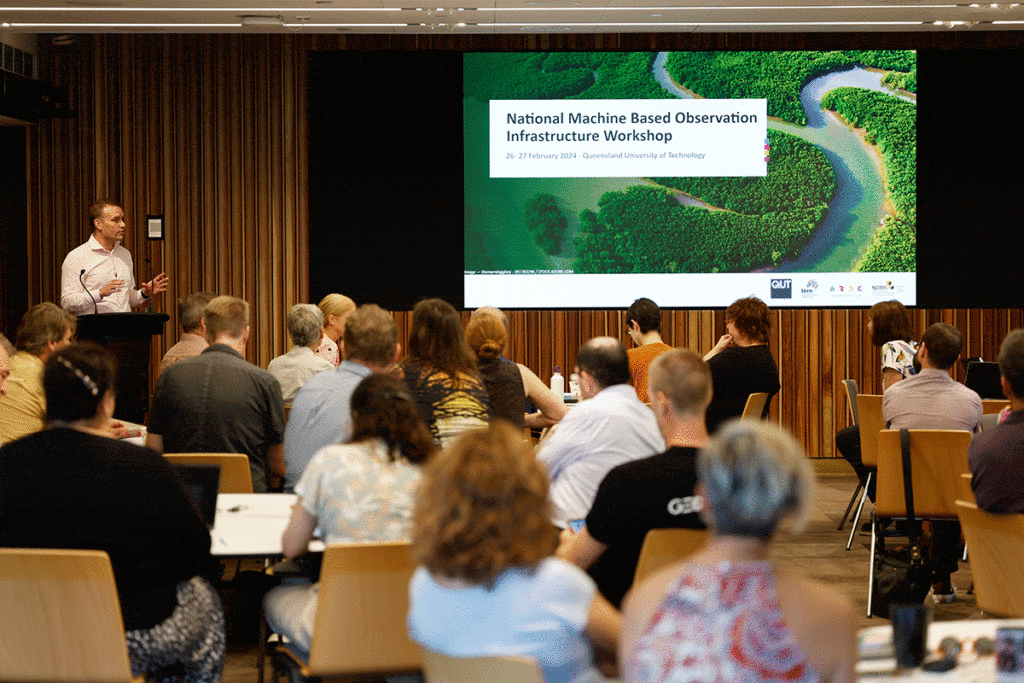
Latest Updates from the Planet Research Data Commons
Exploreabout Latest Updates from the Planet Research Data Commons
Wildlife camera trap, ecoacoustic and drone data are helping researchers understand our ecosystems in more detail than ever before. But the volume of images, sound recordings and video data produced by tens of thousands of machines observing the Australian environment is immense and presents an enormous data challenge for research and decision-makers.
To address these challenges at a national scale, the ARDC, TERN, The University of Queensland (UQ) and QUT co-hosted the National Machine Based Observation Infrastructure Workshop on 26 and 27 February 2024 in Brisbane on Jagera and Turrbal Country. The workshop had over 50 participants from 40 institutions, including state and federal government, non-governmental organisations, private industry, research infrastructure organisations and academia. The workshop aimed to co-design a new Planet Research Data Commons program that will address the data challenges associated with machine observation.

Professor Hugh Possingham, Vice Chancellor Senior Research Fellow, UQ, and former Chief Scientist of Queensland, kicked off the workshop by describing the challenges faced by Australia from an international perspective.
“Australia is a small player in the world of ecological monitoring. For example, Cornell University has one building that may have as many ornithologists as our whole continent. But we do have some superpowers: we have a continent with alpine, tropical rainforest and desert ecosystems, and if we cooperate, we can deliver far more quickly than any other country.”
Prof Possingham said that to remain internationally competitive in environmental research, “we need to deploy national environmental monitoring at massive scales, with open data and unfettered cooperation. There can be no room for egos and empire building.”
We then heard scene-setting presentations from:
Over the 2-day workshop, we heard case study presentations from:

The new program, Machine Observation Data Processing Infrastructure, will establish national shared infrastructure, services and standards to process and reuse automated sensor-based observation data for research and decision making. The initial focus will be on national-scale infrastructure to process the massive amount of image, sound recording and video data being collected. These data will be made analysis-ready with the goal of enabling national-scale continuous monitoring.
The program will be a partnership between research institutions, government, NGOs and other national research infrastructure organisations to enhance continental-scale observation. The data outputs will be made available in analysis-ready formats that are able to be easily integrated into environmental research infrastructures and repositories (e.g. TERN, IMOS, ALA, and that developed through the Planet RDC’s Modelling, Analytics and Decision Support Infrastructure (MADSI) program).
Based on the workshop insights, the ARDC drafted an Australian National Shared Machine Observation Data Processing Infrastructure Roadmap, which outlines both opportunities to collaborate to establish shared national research infrastructure as well as highlighting the importance of growing partnerships and knowledge exchange. Read the workshop report, including the Draft Roadmap.
Learn more about the new Planet Research Data Commons program, Machine Observation Data Processing Infrastructure.
The ARDC is funded through the National Collaborative Research Infrastructure Strategy (NCRIS) to support national digital research infrastructure for Australian researchers.